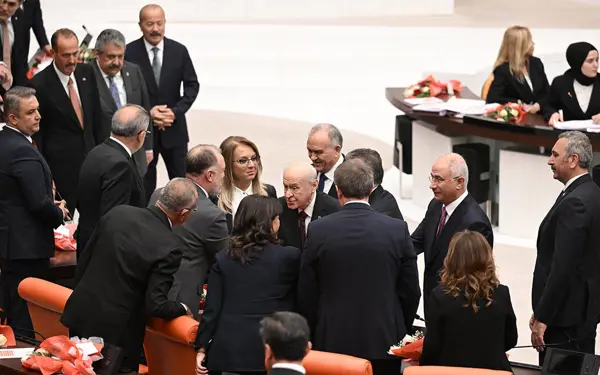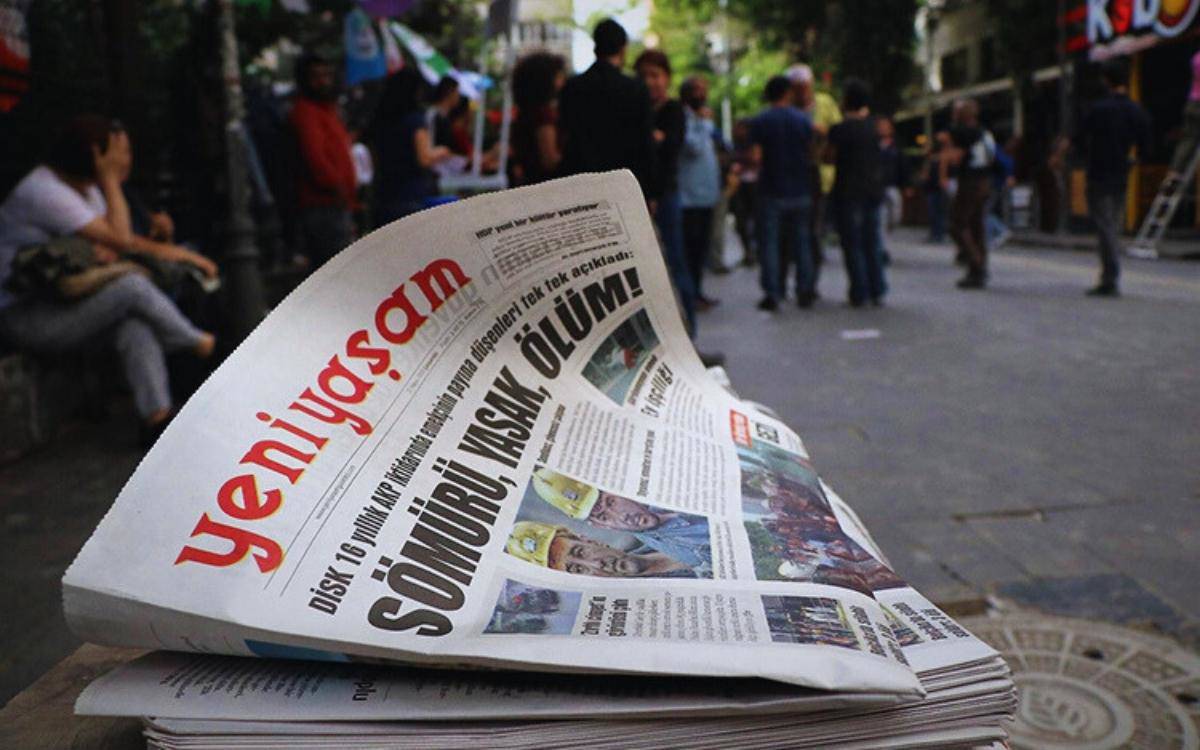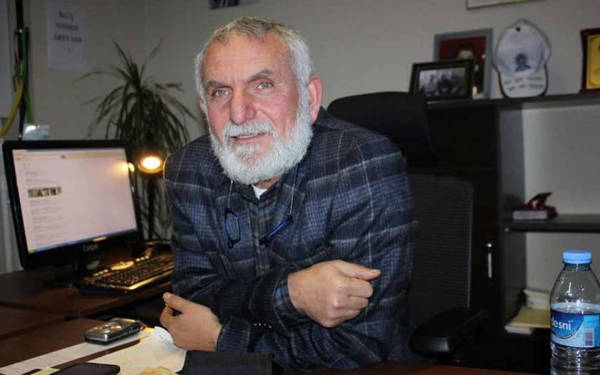The pro-Kurdish Yeni Yaşam newspaper's three issues were seized in the past week on “terror propaganda” accusations. Courts in İstanbul banned and confiscated the newspaper’s editions dated Oct 7, Oct 13, and Oct 14.
The İstanbul 1st Penal Judgeship of Peace ordered the confiscation of the Oct 7 edition due to its headline, “This fire ring can end with Öcalan,” which was based on columnist Fırat Can’s article, “Third World War, chaos in the Middle East, and the way out.”
The article suggested that in anticipation of broader conflict in the Middle East, Turkey should initiate a new peace process with the Kurds in line with the “democratic solution” idea of Abdullah Öcalan, the imprisoned leader of the Kurdistan Workers’ Party (PKK) militant group.
The İstanbul 9th Penal Judgeship of Peace banned the Oct 13 edition over the headline, “A Kurd’s Dream: Reuniting with Öcalan,” and the Oct 14 edition due to the use of a photo of Öcalan.
‘Systematic censorship’
Mehmet Ali Çelebi, editor-in-chief of Yeni Yaşam, described the confiscation orders as part of a systematic effort to suppress the press.
“Censorship and pressure have become trademarks of the AKP [Justice and Development Party] government,” Çelebi said, adding that this practice has been a defining feature of the AKP’s alliance with the Nationalist Movement Party (MHP) since 2016. He emphasized that the pressure is not limited to Yeni Yaşam, pointing out similar actions taken against other media outlets, including the recent revocation of Açık Radyo’s license and the removal of Evrensel from the official press registry.
‘Controlling the media is key to authoritarian regimes’
Çelebi warned that these moves are part of a broader strategy by the government to control dissenting voices in the media.
“If you want to dominate the social landscape as a ruling power and prevent any alternative voices from emerging, you apply this method of control over the press,” he explained. “The state’s judiciary, police, and military have been working for years to silence alternative voices.”
He added that media outlets covering topics such as ecology, women’s rights, labor issues, and democracy, are bearing the brunt of the government’s efforts to monopolize the press. “These actions show that Turkey is not democratic, and the intolerance towards Kurds is clear,” he said.
Suppression of Kurdish voices
Çelebi also linked the confiscation orders to the current political climate. Referring to MHP leader Devlet Bahçeli’s recent handshake with members of the pro-Kurdish Peoples’ Equality and Democracy (DEM) Party, which stirred a public debate about a possible new peace process with the Kurds, he asserted that the AKP-MHP bloc is attempting to shape such a process to their preference.
“The government is trying to sideline Kurdish political actors. They want news coverage, commentary, and headlines that only align with their perspective. But we are reporting on the reactions and demands of the Kurdish people,” Çelebi said.

An ‘event’ and afterwards: The handshake between Bahçeli and DEM deputies
He also pointed out the double standard in how the government reacts to international issues compared to Kurdish matters. “When newspapers report on Israel’s massacres in Gaza or Lebanon, they are praised. But when it comes to the Kurds, we are censored.”
Çelebi urged media organizations to unite and resist these pressures. “Associations, unions, and journalists must learn from Turkey’s press history. Media organizations should stand in solidarity. In 100 years, only the brave reporters of this era will be remembered as the pride of journalism, while others will be left in the shadows of history,” he said. (HA/VK)












